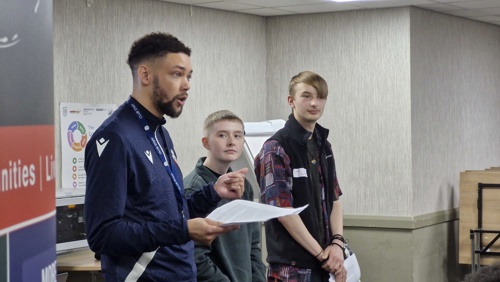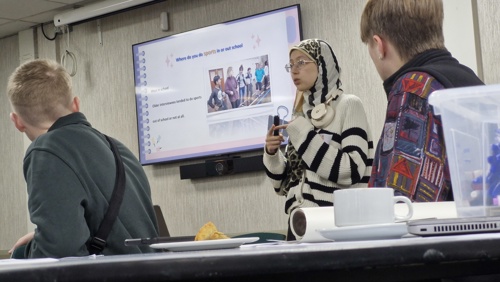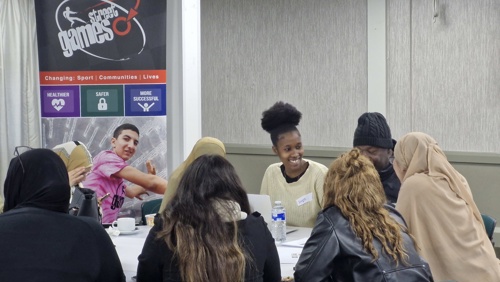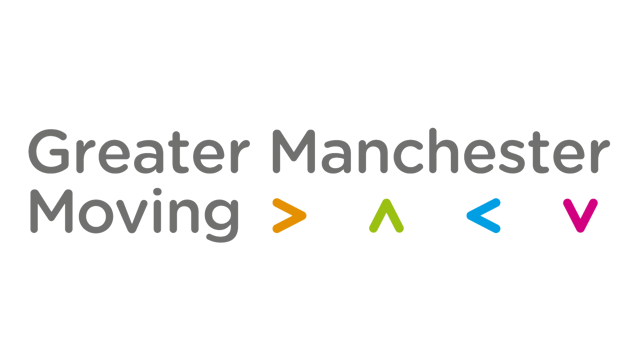Young people take the lead in physical activity with GM Moving
Young people from underrepresented communities lead the conversation on making sports more inclusive at GM Moving’s event, using the Lundy model for meaningful youth participation.
Share

Jess Eastoe, Young People Equalities Lead at GM Moving, is leading the way in getting young people involved in physical activity. She organised an event where two youth-led groups presented their research on what stops young people from being active. These groups included young people from different backgrounds, particularly the Black working-class youth, and trans and non-binary youth.
Jess worked with Sally Carr from StreetGames and Dr Hanbury from Manchester University to create this project. The plan came from last year’s data on what stops young people from being active, which helped the trio to select which three groups to work with. Their goal is to understand the barriers that these young people face and to make physical activity more welcoming for them.

Giving Youth a Voice
Jess used the ‘Lundy model’ to make sure young people had a say in the project. This model is based on the rights of children and young people to be heard and taken seriously. “The Lundy model helps us make sure that young people can safely share their thoughts, design their own projects, and then talk about their ideas with adults who can make a change,” Jess explained.
The young people interviewed 42 people in the community, from various areas including schools, leisure centres and in the street. Findings aligned with those carried out nationally at a larger scale.
The research revealed that race, cost of membership, transport options, lack of time outside of school, and gender were the biggest barriers to sport faced by young people. Another issue was a lack of people to go with, leading some to feel like sport was a lonely activity to pursue.
There were those that experienced racial comments while playing sport, and sometimes additional expectations put on them from stereotypes, leaving them feeling singled out. Persistent stereotypes, particularly around gendered expectations placed on girls of Muslim/South Asian backgrounds, also proved a barrier. Taking part in sport is often seen to challenge stereotypes around femininity. To complicate matters, while sport is encouraged it's not supposed to be done in the presence of men, yet women's only facilities are difficult to find.

What's Next for GM Moving?
Jess plans to keep using the Lundy model to give young people a voice. GM Moving is working on several other projects, after which, Jess and the team hope to create more ways to connect sports with youth programmes. We know that young people can help bring unique and new ideas that adults might not.
Jess’s work shows that young people have valuable ideas about sports and physical activity. She hopes these ideas will help create real change in sports and leisure spaces.
For more information on GM Moving and how to get involved, please visit the Children and Young People page here.
Latest News

Young People Helping to Support Success at the GM Moving Conference 2025
Behind the scenes at this year's Conference was a team of young people from diverse backgrounds, all contributing to the day and gaining valuable experience in the world of media and production.

Trafford Talking Therapies and GP surgeries join parkrun for NHS’s 77th Birthday
Health services came together at Stretford parkrun to support the local community to be more active.

GM Moving's refreshed Active Workplaces Toolkit now available
Support for employers to encourage and enable staff to build moving more is now available thorough GM Moving's Active Workplaces toolkit
